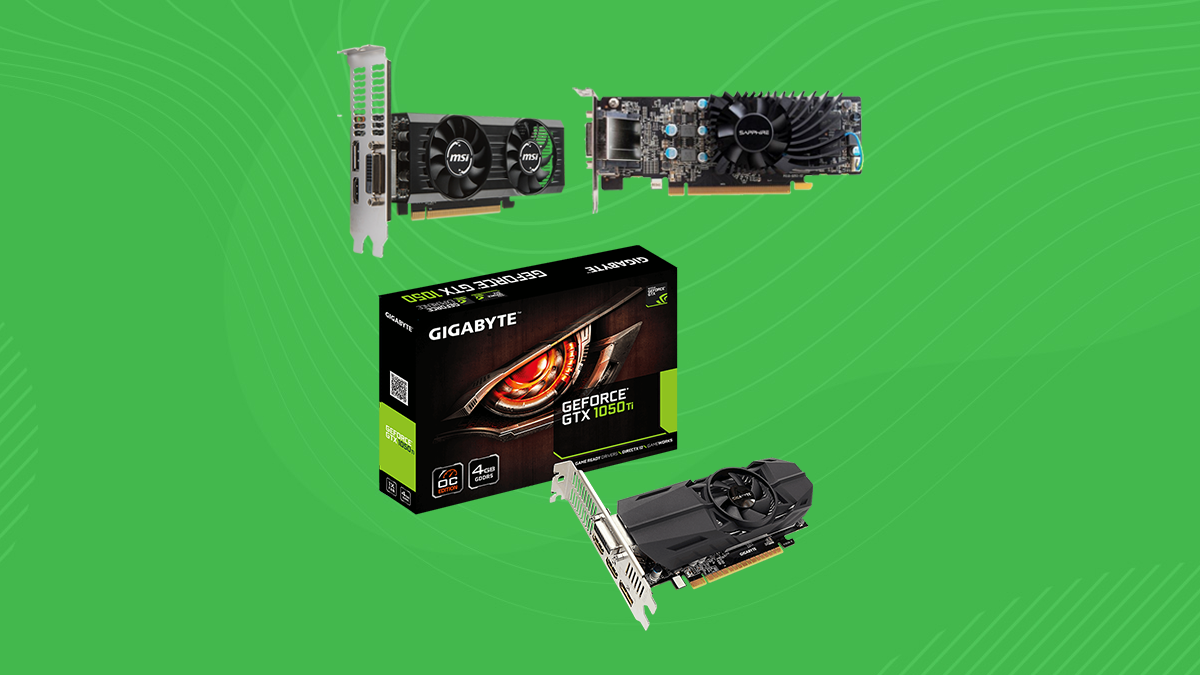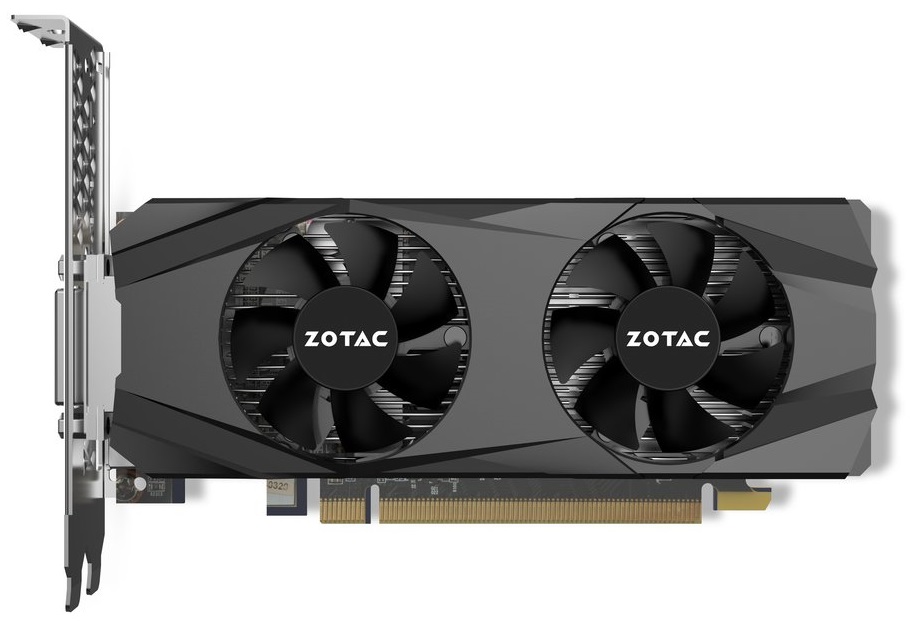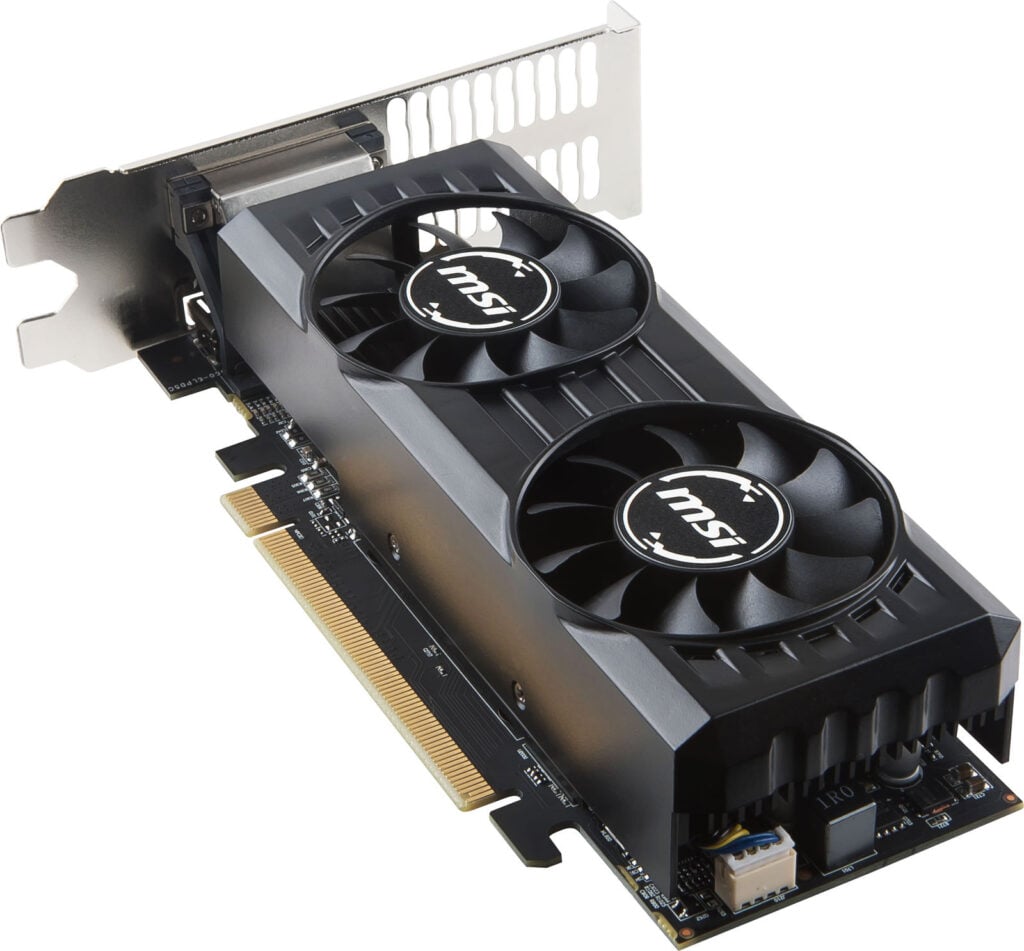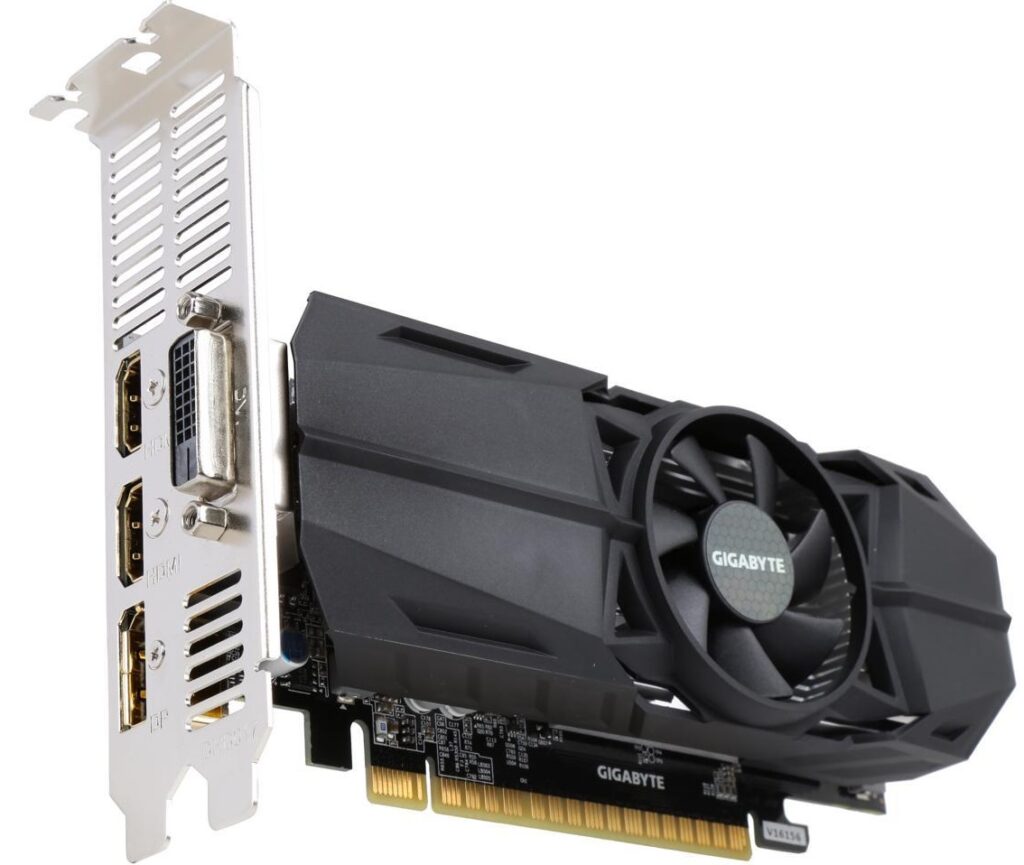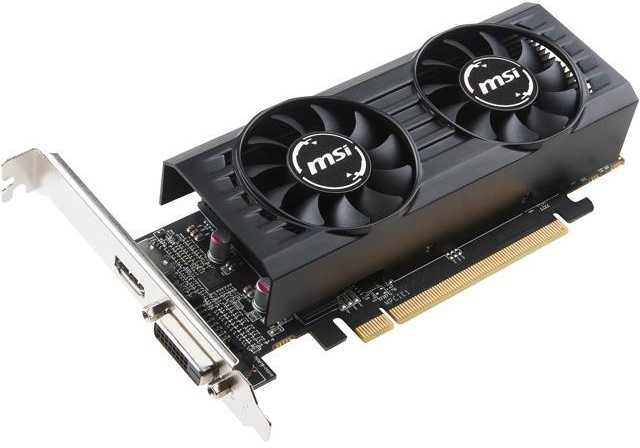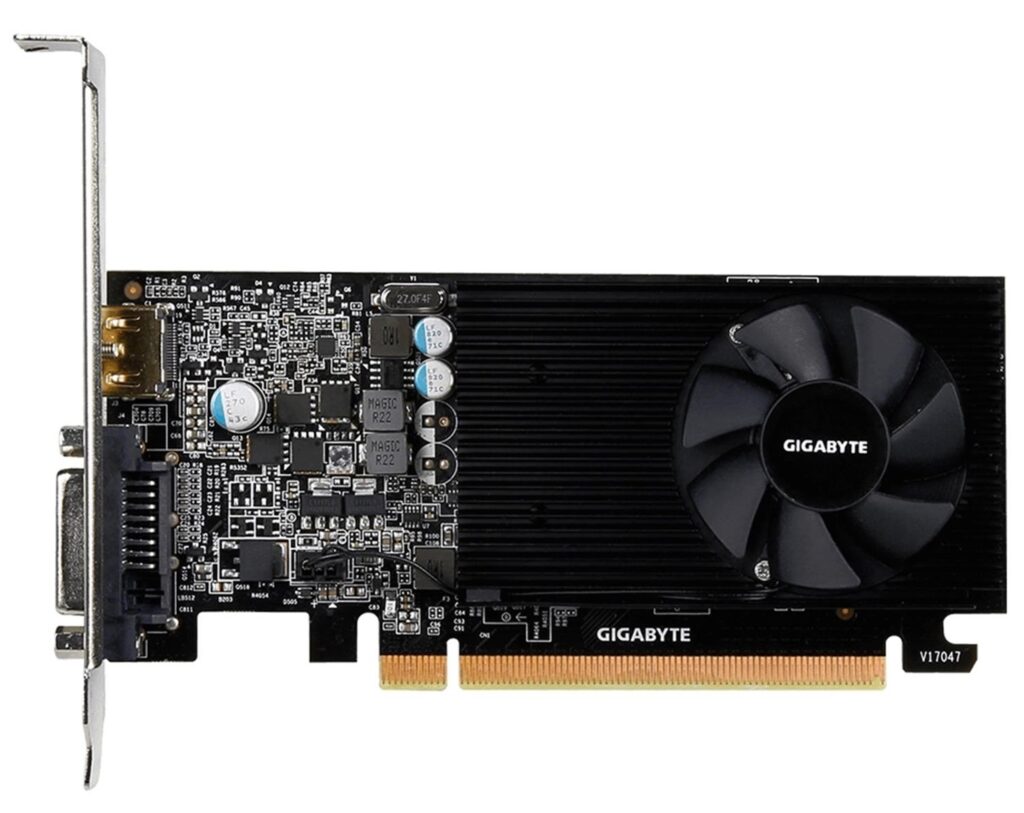This is where comes the concept of low profile computers which not only consume less space on your desk but also have a lot of lower power requirements than a fully equipped gaming PC. Certainly, we cannot fit massive components, especially the humongous graphics card in our low profile PCs that are built using compact mini-ITX cases. To fill this particular need, manufacturers have been designing low-profile cards having half-height than a normal one though still providing adequate graphical performance. You should pick the low profile graphics card for your use case if you want the ideal experience from these compact cards since they are often not that powerful to compensate for their size.
Best Low Profile Graphics Cards You Can Buy Today
Low Profile graphics cards are some of the more complicated choices when it comes to the general graphics card buying experience. While yes, most of these are older cards so you might not have to deal with the ongoing stock shortage situation, but still, you might have to consider a ton of factors before making your pick. The low profile card for your particular use case might differ wildly from someone else’s, so make sure to consider this purchase decision from all angles. Keeping that in mind, here are some of the recommended low profile graphics cards of 2021, that you should consider. Nvidia GTX 1050 TI is a mid-end graphics card that is favored by a lot of people and it is probably one of the most sought out GPUs in the 10 series lineup. This particular design of Zotac packs a beefy enough heat-sink to handle the heat of GPU while being thin enough to fit in the SFF computer cases.
It has a boost clock of 1392MHz, equipped with a 128-bit memory bus and a 4GB GDDR5 memory. Certainly, this graphics card cannot max out the latest stunning AAA titles but almost all the games can be played on 1080p resolution with medium settings. However, for anything above 1080p resolution, this graphics card is not suitable and the lag-free gaming experience cannot be achieved. Since this card does have some gaming potential, you might want to consider our picks for the best low profile CPU coolers as well, to make a powerful compact gaming PC. Zotac has locked the minimum fan speeds for the graphics card at a 45% minimum which creates noise even when idle. Since this is a low-profile GPU, the fans are also smaller than high-profile graphics cards, which results in high-frequency noise which can be a deal-breaker for people sensitive about acoustics. Even customizing your fan curve doesn’t help much since the minimum speed is locked. The graphics card hosts a 1x DP port, 1x HDMI port, and 1x DVI port while consumes around 75 watts at max. Zotac also enriches the market with a “mini” edition of the same model which features a full-height PCB but comes with a single slot bracket. This specific model, however, does not provide the single slot bracket and cannot be used in cases with only a single slot space available. Most of these are mini-ITX cases that differ from micro-ATX cases (you can learn about the differences between mini-ITX and micro-ATX cases here). However, the half-height bracket is included in the accessories of the GPU. In benchmarks, we found that this graphics card was as good as the standard GTX 1050 Ti though the temperature was a bit higher, especially in comparison to standard dual-fan models, making it the perfect choice for almost anyone. Certainly, this 1050Ti LP is our choice overall for the best overall low profile graphics card if you want a decent all-rounder. AMD RX 560 is also a mid-end graphics card targeted towards mediocre-level gamers rivaling Nvidia’s GTX 1050 TI. It is based on 14nm lithography (2nm smaller than that of Nvidia’s 10 series) which is very suitable for efficient working leading to lower Thermal Design Power (TDP) than the previous generations.
MSI‘s low profile edition of RX 560 has a boost clock of 1196MHz, equipped with a 4GB GDDR5 memory buffer and a 128-bit memory bus. This graphics card has slightly lower performance than its Nvidia Counterpart, GTX 1050 TI, but also comes with a lower price tag which can be a good sacrifice for a lot of people. This GPU is not suitable for gaming above 1080p resolutions and a blend of low and medium settings is recommended. MSI’s low profile edition has slightly high thermals despite being fitted with a dual-fan design. Contrary to Nvidia, RX 560 graphics cards can be used in pairs with crossfire technology. This GPU provides a selection of 1x DP port, 1x HDMI port, and 1x DVI port and has a TDP of 60-watts. You might be interested in our picks for the best RX 5500XT graphics cards if you are looking for something more powerful and modern from AMD. FreeSync is also a major advantage of using an AMD product which can ensure a stutter-free experience while G-Sync, and Nvidia implementation, is costly and not suitable for low to mid-end gamers. Accessories of the graphics card also include a half-height bracket though it is still a dual-slot bracket. This graphics card provided us with very similar results to GTX 1050 Ti, especially in DirectX 12 and Vulcan titles as AMD graphics cards are optimized greatly for these APIs. If you want a more powerful gaming graphics card, check out our picks for the best RX 590 graphics cards. The temperature of the graphics card stayed under the limit as MSI has used a beefy heat-sink for this tiny graphics card. This is also helped by the fact that the RX 560 LP does not require much power. To conclude, the MSI RX 560 RG LP OC is one of the Best Low Profile Graphics Card for gaming. This graphics card is a great alternative to Nvidia GeForce GTX 1050 Ti with almost the same performance while providing a different adaptive sync technology. So, if you do not have enough money or GTX 1050 Ti is not available, then this will be your safest bet. Nvidia GTX 1050 is considered the younger brother of GTX 1050 TI with somewhat lowered specifications such as 640 shader processing units instead of 768 on the TI model. However, it is equally good in terms of memory performance as those specifications are identical to those of 1050 Ti though the memory buffer is reduced to half i.e. 2GB. Gigabyte‘s low profile model has a boost clock of 1506MHz.
Related Read: The Best Mini Computers For Powerful KODI Rendering This GPU is targeted towards people who play competitive titles which have good enough graphics but not much demanding so that a wide range of people can enjoy them, such as CS-GO, R6 Seige, Fortnite, etc. The design of the graphics card feels normal with not many bells and whistles as it is supposed to be a low-end graphics card. Though the build quality of the GPU can be improved by a lot, especially the fan quality seems to be a consistent issue for a lot of people. The fan becomes a bit noisy after a few months though it won’t completely stop working leading to thermal throttle. This graphics card includes a 1x DP port, 2x HDMI port, and 1x DVI port, and under high loads, it can consume around 75-watts. A good feature to compensate for this issue is that the GPU’s fan can be completely stopped while it is below a specific threshold. This threshold can also be customized by using the software utility provided by Gigabyte named XTREME Engine Utility. This graphics card can also support four displays due to rich outputs on the back. If you are looking to build a low profile gaming setup, be sure to read our opinion on whether low profile keyboards are worth the extra cost. This graphics card gave a tough competition to AMD RX 560. The FPS figures were slightly higher in DirectX 11 titles while in DirectX 12 and Vulcan-based titles GTX 1050 lagged behind. This can be the best Nvidia best low profile graphics card for you if you own a GSync display, otherwise, you might also want to consider the AMD RX 560 that we mentioned before. Still, you would be hard-pressed to go wrong with either of these choices. AMD RX 550 is a cut-down version of RX 560, as expected comes with a lower price tag and provides lower performance. Unlike Nvidia’s GT 1030, this graphics card is coupled with a 128-bit memory bus and also with the same amount of GDDR5 memory buffer as that found on RX 560 and GTX 1050 TI.
It is still debatable though that this luxurious amount of memory buffer is not very helpful, for such a low-end product, in gaming but in certain applications, it still has its advantages. MSI has used two fans on this low profile design and a heat sink big enough to dissipate the heat efficiently. Also, a single-slot design is being used in combination with two display outputs. RX 550 is among the most attractive products in the low-end graphics card market due to its low price and still having suitable performance while providing rich features. MSI has used military-class-4 components on this graphics card which ensures great life expectancy. This graphics card provides an HDMI port and a DVI port for display and consumes around 50-watts at full load. Since this card is aimed at HTPC use, check out our opinion piece on the benefits of a home theater PC (HTPC). A half-height bracket is also included in the accessories for usage with SFF based systems. While it requires a costly G-Sync monitor to take advantage of G-Sync technology on Nvidia’s side, AMD users can enjoy the stutter-free experience with the FreeSync technology as long as the GPU is providing enough frames per second. In certain scenarios, RX 550 is also at an advantage with Vulcan-based games where Vulcan is an Application Programming Interface (API) and AMD shines in this particular API comparing to Nvidia. This is the best low profile graphics card for HTPC use in our roundup. Speaking of which, you should definitely consider our picks for the best HTPC cases for this purpose, before making the purchase decision. This graphics card gave similar results to GT 1030 in gaming benchmarks which is why we will not recommend this graphics card for any serious gaming session. However, for low-end games, browsing, and watching UHD videos, this card is a sound choice. If you want an AMD card that is solid for gaming, you should instead check out our picks of the best RX 580 graphics cards. Nonetheless, the temperature of the graphics card was way under the limit as it is not a power-hungry graphics card. Nvidia GT 1030 is the lowest end graphics card of the 10 series and it is targeted towards people with very basic graphical needs such as watching a video, browsing, and low-end games. It is not suitable for any game with mediocre graphics and will cause a lot of lag and stutter, though the resolution and settings can be adjusted to allow the user to enjoy old games at decent frame rates. For graphics cards more geared towards gaming, you should check out our picks for the best GTX 1650 graphics cards.
A resolution of 720p is recommended to use with this graphics card and anything above will be a hassle. Older games i.e. games before 2010 can still be enjoyed at rich 1080p resolution with suitable frames per second. Gigabyte’s low-profile design has a basic heat sink and a small fan since the TDP of the GPU is not very high. It is equipped with a 64-bit memory bus width and a 2GB frame buffer along with 384 shader processing units. It operates at a 1506MHz clock rate which is a bit higher than the stock clock speed of a GT 1030. The design of the graphics card is too outdated with a small black heat sink and an unimpressive fan. Of course, there is no RGB lighting as you would expect. This saves a lot of manufacturing cost though which is why this graphics card is very cheap and an attractive product for people who pay less attention to the aesthetics and more about the actual features. There is only a 1x HDMI port and 1x DVI port for output and this graphics card can consume around 20-watts at max which shows that it is very power efficient. Related Read: The Best GTX 1060 Graphics Cards Another advantage of this graphics card is that it comes with a single slot design which is very handy for some people having only a single slot space in their cases. Since this is a graphics card from a recent generation, its architecture provides certain advantages which might appeal to a consumer such as hardware acceleration for the latest video codecs. Just stay away from GPU overclocking, since the power delivery definitely can’t handle it. The gaming benchmarks of this graphics card were a little disappointing as there was a lot of stuttering in the latest titles even at lowered resolutions though it proved excellent during the UHD video playbacks. While yes, this GPU does not make itself a serious contender for the title of the best budget low profile graphics card, but it still has its place. This graphics card should only be considered if you are more fond of browsing and watching videos than games. For anyone, who wants to enjoy the mind-blowing visuals of a game, should avoid this graphics card.
Facts About Low Profile Graphics Cards
Low-profile GPUs are nothing out of the ordinary. They are low-powered, often a step down from official GPUs. These GPUs are used as an alternative to CPUs integrated graphics which are usually slow or simply might not be available. Even the best APUs for gaming might not hold up to a dedicated GPU. They have a small footprint which makes for easy compatibility with cases of any form factor. These shouldn’t be mistaken as gaming components although some GPUs in our top list are fast enough to handle modern titles at reasonable frame rates. Still, we see many people making mistakes while buying a low-profile GPU for their desktop. Every person has a unique use case so the low profile card for one user might be completely different from the next. Therefore, we will go through some factors you need to consider as you plan to get your low-profile GPU.
Usage Scenario
So far we have discussed how low profile cards are not meant for gaming. They can perform well enough in some titles at low settings but they have other purposes. If you want something for modern gaming, you should take a look at our picks for the best GTX 1070 graphics cards. The market offers these GPUs and can vary vastly in terms of price and performance. The card you need depends on your requirements although there might not be significant performance differences. What do you use PCs for? How much performance do you need? For a normal home theater PC go for the cheapest option or one that has very low power consumption and footprint. If you do content creation or light gaming from time to time consider getting a more powerful option instead. This way you can avoid over or under spending on GPUs. And so concludes our roundup of the low profile graphics cards one can buy right now. While these might not be the ideal choices for every particular use case, they give you a general idea of what you should look for in a low profile graphics card. Be sure to let us know in the comments which low profile graphics card takes your fancy, and whether or not you agree with our picks.
Best Low Profile CPU CoolersBest GTX 1080 Ti Graphics CardsBest AMD Radeon RX Vega 64 Graphics Cards To Buy In 20225 Best RX 5600 XT Graphics Cards For High-End 1080p Gaming In 2022
